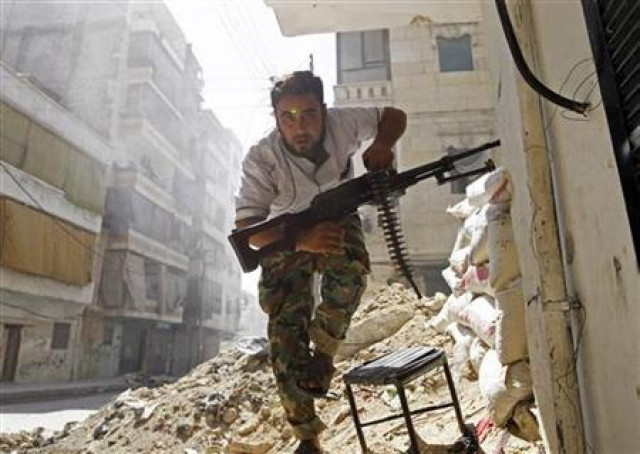After Afghanistan and Iraq, now Syria
President Obama and his team are under growing pressure to make up their minds.

President Obama and his team are under growing pressure to make up their minds. PHOTO: REUTERS/FILE
Few believe this however, either in Syria or outside of it. The civil war there has raged now for over two years as the rebels’ attempt to throw the Assad set-up has led to greater violence. Following the chemical weapon onslaught, the feeling in Washington has been that it cannot really stand by and watch. But, at the same time, it is also obvious that US President Barrack Obama is caught in a dilemma. He has made it clear that he is still pondering the options. US allies have also been lately considering what to do — with the UK, which would play a key part in any military action in Syria, initially suggesting it would fully back a US move in the country, but more recently, seeking a full report from the UN Security Council before any final decision is taken on the matter. Within the Security Council, Russia, a key Syrian ally, is almost certain to use its veto powers against the use of force.
President Obama and his team are under growing pressure to make up their minds. What should be clear is that air strikes on Syria will not really resolve matters. With an expensive military campaign in Afghanistan drawing to a close, the US and its allies are leaving that country with arguably bigger problems than Afghanistan faced when it was invaded. A similar scenario playing out in Syria will be a huge disaster for the country, the US and its allies, and the region at large. What happens next is something that could determine a great deal about the way things stand at present in the world and how the future will shape up for the Middle East, as the US ponders its equations with countries in that region.
Published in The Express Tribune, July 30th, 2013.
Like Opinion & Editorial on Facebook, follow @ETOpEd on Twitter to receive all updates on all our daily pieces.















COMMENTS
Comments are moderated and generally will be posted if they are on-topic and not abusive.
For more information, please see our Comments FAQ